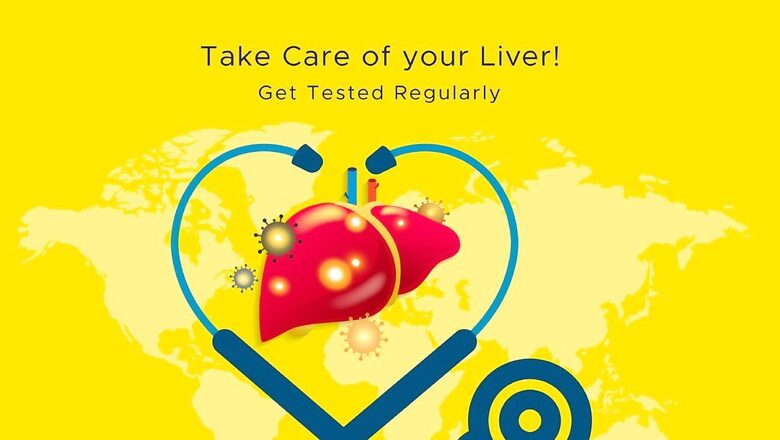
views
Hepatitis refers to inflammation of the liver caused by to variety of infectious viruses and other agents that lead to a range of serious health risks that can be fatal. World Hepatitis Day is observed on July 28 each year to raise global awareness about hepatitis and its harmful impacts on health.
This day serves as an opportunity to step up national and international efforts to encourage its prevention, early diagnosis and effective methods of treatment for hepatitis. Some types of hepatitis are preventable through vaccination.
According to a World Health Organization (WHO) study, taking significant steps like vaccination, diagnostic tests, medicines and education campaigns could potentially avert an estimated 4.5 million premature deaths in low- and middle-income countries by 2030.
World Hepatitis Day 2024: Theme
The theme for this year’s World Hepatitis Day is “Take Action. Test, treat, vaccinate.” It highlights the importance of proactive measures to combat hepatitis. The focus is on implementing initiatives that not only reduce hepatitis infections but also enhance access to timely diagnosis and effective treatment.
World Hepatitis Day 2024: History & Significance
World Hepatitis Day has been observed on July 28 since 2010 after a resolution was adopted during the 63rd World Health Assembly. July 28 was chosen to commemorate the birthday of Dr Baruch Blumberg, a Nobel-prize-winning scientist, who discovered the hepatitis B virus (HBV) and developed a diagnostic test and vaccine for the virus. The day aims to raise global awareness about viral hepatitis and advocate for better access to prevention, diagnosis and effective treatment.
World Hepatitis Day 2024: Key Facts
- 5 viruses predominantly affect the liver – hepatitis A, B, C, D, and E. Hepatitis A and E spread through the faecal-oral route which is preventable if one follows proper hygiene. Hepatitis B spreads through blood and body fluids and hepatitis C through blood-to-blood contact. Hepatitis D only occurs in people infected with hepatitis B.
- According to WHO, an estimated 354 million people have hepatitis B or C, with most testing and treatment inaccessible for most and low awareness about the infection. The awareness rate is less than 20%.
- Over 1.5 million people die each year from viral hepatitis. This is because many remain unaware of their diagnosis until the very late stages of the disease. The most common cause of death remains to be liver cancer.
- Hepatitis B and hepatitis C are transmitted through blood so avoid sharing needles, syringes, razor blades and toothbrushes.
- Hepatitis B, C and D can cause chronic liver disease, cirrhosis, and liver cancer. It is recommended to have regular check-ups, vaccination and opt for healthy lifestyle choices to prevent any liver damage.
- Hepatitis B can be treated with oral medication. One must have regular check-ups even if treatment is not immediately required.
- Hepatitis C is effectively treated with direct-acting antiviral (DAA) tablets. These tablets are known for their high safety and efficacy in treating hepatitis C.




















Comments
0 comment